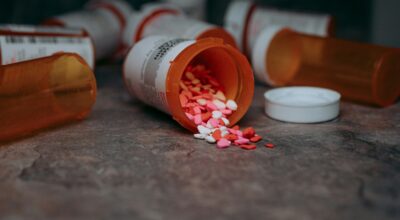SOAR program targets root causes of incarceration
Published 7:44 pm Thursday, July 11, 2019
EDITORIAL
The Advocate-Messenger
It’s hard to cure an illness if you only focus on the symptoms.
For the utmost healing, you have to go to the cause, the issue deep at the root of the illness.
For most people who are incarcerated and are also struggling with a substance abuse disorder, jail time alone is like slapping a tiny Band-Aid on a much too big wound. They might see some short-term progress, but the wound will not fully heal and the illness will remain.
That leads to recidivism, and that means more crimes will likely be committed, more time will be spent in jail, more families and individuals will suffer in the grips of addiction for longer periods of time, and counties will be forced to continue funding jails that are overcrowded largely because of the state’s drug problem.
A new program announced this week aims to help provide more efficient recovery for those who are incarcerated and have a substance abuse disorder.
Kentucky Justice Secretary John Tilley joined with the state Department of Corrections to announce the first ever aftercare program within a Kentucky prison, Northpoint Training Center here in Boyle County. The hope is this program will provide a new system of support, mentoring and peer accountability for offenders in recovery.
The program, called SOAR (Supporting Others in Active Recovery) will focus on relapse prevention, education and reentry skills based on the Therapeutic Community Model, a group-based, residential approach to treating substance abuse, according to a press release from the Kentucky Department of Corrections.
The strategies used in the program aim to reduce recidivism and provide a platform for long-term recovery before inmates return to their communities.
“With a commitment to sober living, participants live together in a single dormitory … The goal is to provide a steady continuation of care as inmates complete their sentences along with other programs and curriculum,” the press release states.
The program is funded in part by a $300,000 grant from the Kentucky Office of Drug Control Policy.
SOAR will be available to up to 88 participants who have first completed a substance abuse program or graduated from Moral Reconation Therapy.
Each participant will be assigned a social service clinician who will help with a individually-tailored program.
Research shows that offering prisoners treatment options during and after their incarceration reduces recidivism, helps keep them off drugs and provides a pathway to employment and productivity.
According to an article published by The American Psychological Association, “Research published in the 1990’s by psychologist Dr. Harry K. Wexler, a leader in prison reform, found that prison-based substance abuse is effective — if combined with aftercare — and leads to major reductions in recidivism. For example, his 1999 study involving 478 prisoners at a state prison near San Diego, California, found that after three years, only 27 percent of the prisoners involved the prison’s drug treatment program with aftercare returned to prison, compared to a recidivism rate of 75 percent for those not involved in the treatment program.
“In a combined sample of 1,461 inmates from California, Texas and Delaware, about a quarter of those who took part in intensive drug treatment programs and aftercare ended up back in prison compared with about three-quarters of those who received no treatment in prison or those that received treatment in prison but no treatment after being released.”
We won’t solve our substance abuse issues in Kentucky by simply slapping a Band-Aid on the problem. And we won’t do it by simply incarcerating those who are struggling with a substance abuse disorder.
We need to look at how we can help our neighbors struggling with addiction find healing.
This program will be a critical part of the approach to tackling the plague that is substance abuse on our society.
No community is immune to the issue. Most families have been touched by substance abuse in one way or another.
But there is hope, and if we continue to evaluate how we approach healing and recovery, we can find the best, most-effective solutions.
Incarceration alone has not proven to be the most-effective solution, so it is refreshing to see the DOC recognize that and change its approach.
We hope its an approach that proves successful.
We hope Kentuckians will find healing, recovery and bright new futures through this program.
And if it proves effective, we hope to see similar programs in each and every detention center in the country.






